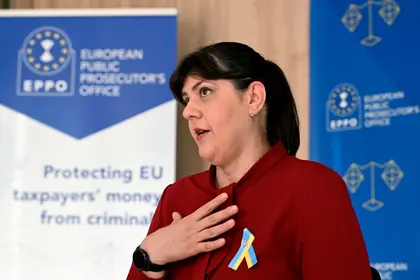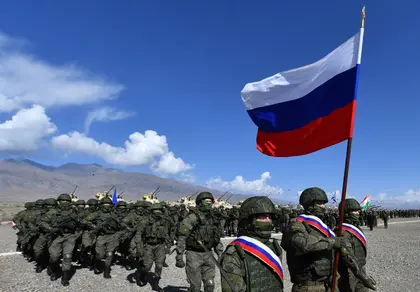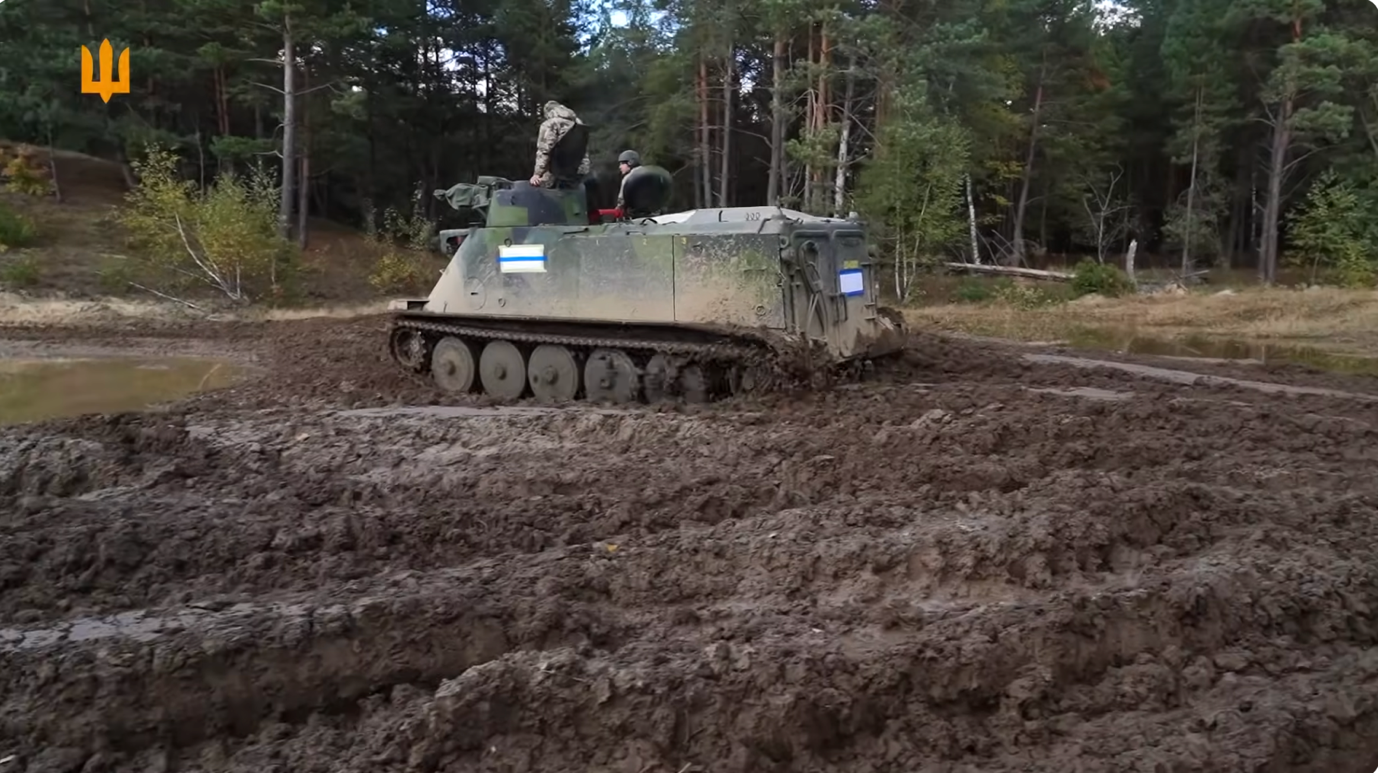Europe's chief prosecutor Laura Codruta Kovesi is already investigating frauds that allegedly cost EU taxpayers 14 billion euros -- now she wants to go after the smugglers undermining sanctions against Russia.
The European Public Prosecutor's Office is charged with probing any offence deemed to have cost the European Union money, which often means tracking international crime gangs and sophisticated cross-border VAT fraud operations.
JOIN US ON TELEGRAM
Follow our coverage of the war on the @Kyivpost_official.
The office assumed full powers only in June 2021, but when AFP visited Kovesi at her Luxembourg office on Wednesday, she was celebrating both her native Romania's spring Martisor holiday and the publication of the EPPO's second annual 100-page report.
The figures are impressive: The office's 114 prosecutors have 1,117 active investigations and have frozen suspect funds worth 359 million euros ($383 million), more than seven times the organization's budget.
But Kovesi still wants to do more.
The EU has imposed a series of ten packages of economic sanctions to punish Moscow for its year-old invasion of Ukraine, and the 49-year-old anti-graft champion wants to go after the gangs circumventing the measures to supply Russia's war machine.
"This is something that we already have been asked by the Commission -- if we can deal with it. And our answer was: 'Yes, we can do it. We are ready to do it'," she told AFP.
"We have specialized prosecutors. We have offices in 22 member states... We are the only available tool in this moment at the European level that can fight with this kind of criminality."

Germany's Baerbock Offers Ukraine No Guarantees as Kyiv Sounds Alarm
Any decision to add sanctions-busters to the EPPO's targets will be a political one, taken by the leaders of the EU member states, not all of whom are big fans of the EPPO.
Kovesi came to the new European judicial authority from Romania, where she was the country's youngest prosecutor general and the first woman to hold the post. She went on to be chief prosecutor for the National Anti-corruption Directorate.
- Operation Admiral -
Her investigations made her enemies in the Romanian government, and she was dismissed before being recruited to head up the European Union's anti-fraud effort.
Her new job, she says, is free of political interference, and her specialist teams are allowed to pursue prosecutions across Europe against gangs that learned to ignore Europe's open borders long before the authorities did.
This has led to notable successes, such as Operation Admiral, an investigation that broke up a network responsible for 2.2 billion euros in VAT fraud.
It started small, with Portuguese tax authorities asking for help investigating a small firm selling mobile phones, tablets and other electronic devices. EPPO specialists eventually uncovered a network of VAT fraud with outposts in all 27 member states.
Kovesi sees this as good value for money for EU taxpayers, but she has not won over everyone. Five EU member states -- Denmark, Sweden, Hungary, Poland and Ireland -- have refused to take part and have assigned no prosecutors to the EPPO.
She is cautious not to criticize the hold outs, but she is clear that she would like to close up some of the holes in her network.
"We would like to work with all our colleagues from these five member states inside of the EPPO zone, but this is a political decision," she said.
"But what I hope is that when they read our results, when they see the advantages that EPPO offers -- The speed in our investigation, the efficiency in our investigation -- I hope they will be convinced that the only solution is to join EPPO."
In some EU capitals there is a tendency to see misuse of EU funds as an eastern phenomenon, with newer members like Bulgaria and Romania struggling to control corruption, and Poland and Hungary resisting the supremacy of EU law.
- Patriotic corruption? -
This has fed into opposition of the long-stalled EU membership bids of countries in the western Balkans, and to the idea of fast-tracking Ukraine into the bloc once the war with Russia is over.
But Kovesi rejected the idea that eastern states are more corrupt, noting widespread VAT scam investigations underway in Germany and Italy, and saying that she and her teams have already visited Kyiv and stand ready to help Ukraine carry out reforms to tackle corruption.
But there are other factors undermining pan-European law enforcement: national rivalries and disdain for the Brussels bureaucracy.
"Well, I heard in some member states that you have to be 'patriots' -- and if you steal your national money it's a problem, but if you steal EU money it's not a problem because you are a patriot," Kovesi told AFP.
"This is a wrong mentality, because in the end your money, our money, is for all the European citizens. And you have to protect all the money for all European citizens."
You can also highlight the text and press Ctrl + Enter






